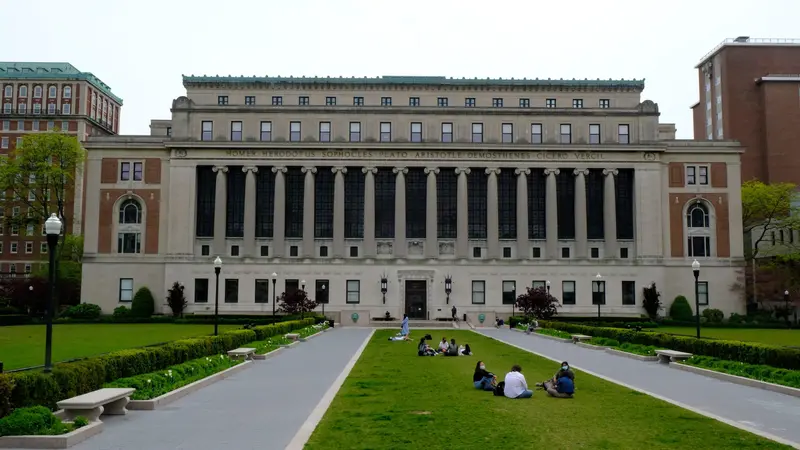Columbia University has been rocked by revelations about the university’s handling of the case of Robert Hadden, a former obstetrician-gynecologist who sexually abused patients for decades while working at the school.
A ProPublica investigation, published last month in collaboration with New York Magazine, detailed how Columbia failed to stop Hadden and then sought to deflect blame and distance the university from the scandal once his misconduct became public. Columbia has also refused to notify Hadden’s thousands of former patients that he’s been convicted of sexual misconduct.
Last week, more than 100 medical students wearing white coats were joined by some of the survivors in a protest at the inauguration of Columbia’s new president, Minouche Shafik. Throughout the event, they chanted, “Notify the patients.” The students have also called on Columbia to commission an independent investigation and to share the systemic changes the university has made as a result of the scandal. The students said administrators have not announced any actions in response to the students’ demands.
Also last week, an additional 301 former Hadden patients filed civil suits against the university, bringing the total to 538. Columbia has already settled with more than two hundred patients for $236.5 million.
Columbia did not respond to ProPublica’s request for comment about the students’ demands or the new suits.
Hadden was arrested in 2012 after a patient called the police to report that Hadden had sexually assaulted her. Administrators at Columbia and NewYork-Presbyterian Hospital then allowed Hadden to return to work, where he continued to abuse patients for five weeks before being suspended.
In 2016, Hadden agreed to a plea deal with the Manhattan district attorney’s office in which he received no jail time. The Department of Justice later charged Hadden, and he was convicted in federal court this January of abusing patients and is currently serving a 20-year sentence.
Following publication of our investigation, Columbia issued an apology for the first time. The statement was signed by Shafik and by Katrina Armstrong, the CEO of the Columbia University Irving Medical Center, where Hadden delivered babies. The letter says that the university “continues to grapple with the magnitude of harm done” to Hadden’s patients. “We are heartbroken for those who have suffered and continue to suffer from these terrible actions. Hadden will spend the rest of his life in prison thanks to these courageous women. We commend them for coming forward. We offer our deepest apologies to all his victims and their loved ones.” The letter did not lay out any specific shortcomings on Columbia’s part. Through a university spokesperson, Shafik declined to give further comment.
Two survivors, Marissa Hoechstetter and Evelyn Yang, along with their attorney, Anthony DiPietro, condemned the statement, calling it “self-serving propaganda.” They also said that the university continues to “keep thousands of patients in the dark.”
One reason that survivors are calling on the university to notify patients is so that if Hadden had other victims, they can seek justice through the courts. The Adult Survivors Act, a law passed in New York state last year, opened up a temporary one-year window in which survivors of sexual abuse can file cases against their abusers — or the institutions that protected them — even if the statute of limitations has expired.
On Sept. 28, during the annual State of the School address given at Columbia’s medical school, Armstrong gave a brief statement about Hadden, saying that she shared attendees’ distress and concern for the victims and their loved ones. “I also want you to know that we will be working as a community with everyone over the next weeks and days to make sure that we provide all the information about where we’ve come and all that’s been done to make sure that this will never happen again, to offer opportunities for support and engagement to everybody in our community for what you all need and deserve.”
Armstrong did not respond to a request for further comment.











